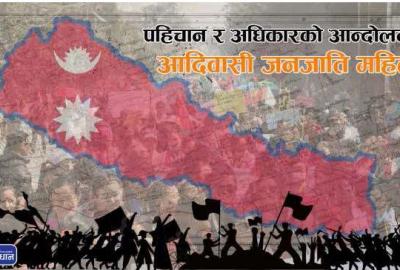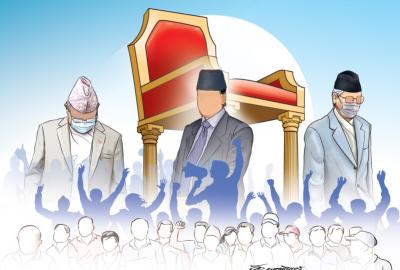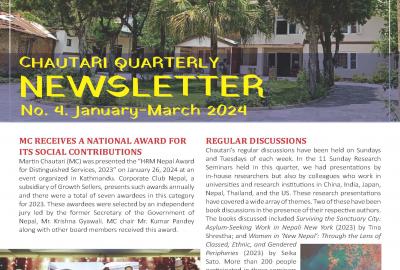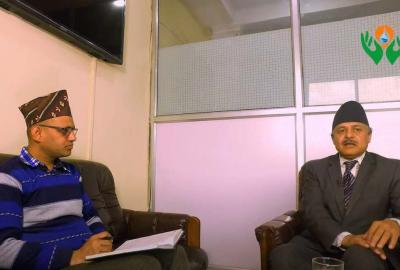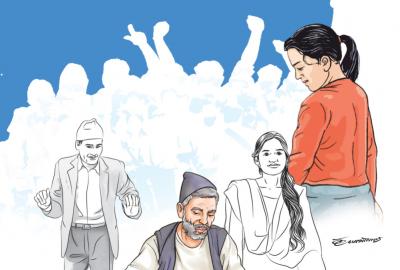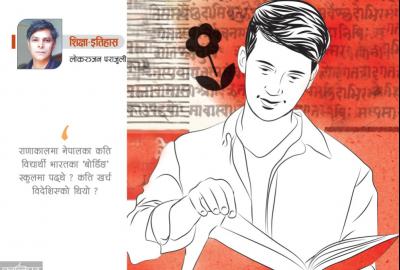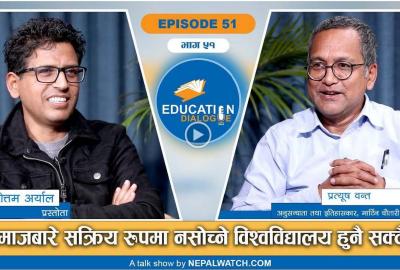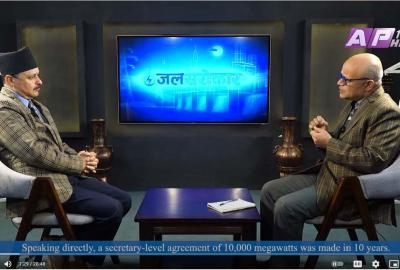
Organising a regular seminar series requires the time and dedication of committed individuals.
In several of my recent columns, I have argued for a pluralistic higher education and research landscape in Nepal. One major constituting practice in such a landscape should be the organising of regular academic seminars in various colleges and universities in different parts of the country.
Why seminars, you might ask. The world is very complex. By listening to each other patiently in academic seminars, we begin to understand how members of the academic community are trying to make sense of that complexity (that is not to say that academics are the last interpreters of that complexity). Such listening is foundational to the academic enterprise and should not be confined to universities and colleges in the capital city or other large cities of the country.
Seminars over conferences
I begin by stating why I emphasise the organising of regular seminars over annual academic conferences. Although I have participated in several academic conferences in Nepal and abroad, I am no fan of them. As I discussed in an earlier piece in this newspaper (“Rethinking academic conferences”, December 16, 2017), academic conferences are, for the most part, badly organised. They provide at most 20 minutes for speakers to present their research. Unless one has mastered the art of such presentations through rigorous practice over the years, that is simply not enough time for most speakers. Hence, such presentations do not allow the speakers to really discuss their research design and findings adequately.
Conference participants, in turn, then do not get to ask engaging questions that really help the speakers to refine their analysis. Moreover, I have seen little evidence of conference papers being revised and published in the leading journals published from Nepal. All in all, while conferences are great social occasions (meeting new people, making connections), I think their academic contributions are rather limited.
Instead, I think of seminars as occasions that allow both the speakers and the participants to not be confined by the limitations of the conference presentation format. The speaker can easily be allowed to talk for 45-50 minutes (or more if needed). Subsequent to the main presentation, there can be another 30-45 minutes allocated for floor discussion where participants can ask for clarifications or comment on any aspect of the presentation. Such relatively lengthy encounters are especially useful to speakers who are still struggling to finalise their analysis of the research in hand. They are also very useful to early career researcher participants who can slowly learn the art of speaking and critical engagement by regularly observing how others do it over the course of several months or years.
We should emphasise that the above-mentioned seminar format should have no place for asan-grahan of dignitaries or similarly vacuous practices seen in our public life.
In addition to the single speaker format for seminars, organisers can occasionally invite several speakers for a roundtable focused on a particular topic. Such group discussions are an integral part of the research process as they allow academics to reflect on the status quo of knowledge on a particular theme and identify avenues for new research.
Finding the speakers
If seminars are to be held regularly in different parts of the country, where can we find the speakers? Given the number of faculty members in most of the colleges and universities in our country, it should not be too difficult to find some in-house speakers who can present their own research. Moreover, young researchers who are completing their doctoral, MPhil and MA research in our universities should be encouraged to present their work (such presentations will help them enormously to refine their analyses). Seminar speakers could also come from other universities and their various affiliated campuses in the nearby region. Independent scholars and those that work for academic NGOs could also be invited.
The set of speakers need not be limited to our country. Hundreds of Nepali researchers now work in academic institutions outside of Nepal. Many of them visit the country frequently. They could be personally invited to speak in these seminars. Moreover, many dozens of our non-Nepali researcher colleagues visit Nepal each year for research or research dissemination purposes. They too could be invited to speak. Beyond personal invitations to folks known to seminar organisers, there could be an online portal where visiting academics could upload their dates of availability and other details of the seminars they could offer. Online seminars can also be organised if interested academics can’t travel to Nepal. Hence, if organisers are committed, finding speakers is hardly a major problem.
But who will attend these seminars? The answer is straightforward: Other faculty members in the concerned college or nearby colleges, research centres and universities. A majority of participants should be students, especially senior-year BA and graduate students. Every university or college campus in our country has many diligent students who are curious to learn. Moreover, there is no need to be overly anxious about the number of participants in each seminar. It is the continuity of the seminar series that matters more than the number of people who might show up for one particular seminar.
Collective organising
Who should organise these seminars? Disciplinary departments could organise them. In fact, many departments do organise such seminars occasionally (please ask them why they don’t organise them regularly). If a particular department alone cannot do so, they can be organised as an interdepartmental venture of a particular college or university. If intra-departmental or inter-department politics prevents the organising of such seminars, academics from various social science and humanities disciplines in a particular college or across two or more colleges/universities could get together and organise them. If a group of such academics gets together and decides to run a multi-disciplinary weekly seminar series, it would not need the blessing of any obstinate head of department or some such administrator.
Organising a regular seminar series requires the time and dedication of some committed individuals. Like many other good things in academia, organising is best done by sharing the burden amongst colleagues. For example, if eight academics get together to run a weekly seminar series, each member of the group would be responsible for organising just one seminar every two months or so. Surely, that load is not overwhelming. I can attest first hand that small groups of committed individuals have kept seminars going for decades. When one or more members of such groups retire, others will have to step in and share the burden.
Regular seminar series would contribute to the partial realisation of a pluralistic higher education and research landscape in the country. However, I recognise that in the current state of Nepal’s colleges and universities under the bhagbanda regime, there is no systemic incentive for academics to organise such seminar series. Hence, those academics who are committed to the enterprise should organise seminars as part of realising their commitment to the profession and to the mentoring of the next generation of Nepalis. Who knows, a flowering of research seminars across the country might be one possible antidote to the deleterious effects of bhagbanda in our higher education institutions.
Published at : June 22, 2023
Source: https://kathmandupost.com/columns/2023/06/22/more-academic-seminars-please
